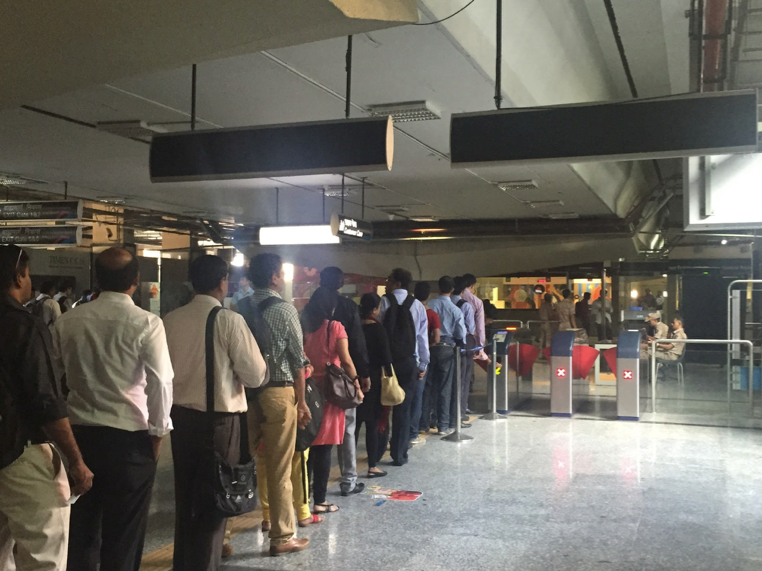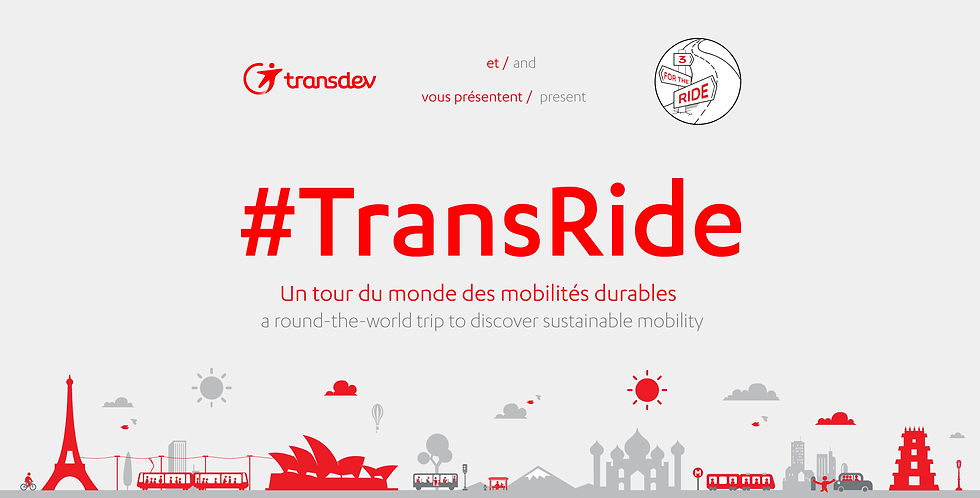Mumbai, India: The challenge of intercultural management
- threefortheride
- Mar 26, 2016
- 3 min read
“That’s what makes the difference! Transdev succeeds in adapting its processes to the local cultural context.” Eric Labartette

The Mumbai metro, running since 2014
Two competing companies, one tough market: RATP Dev and Transdev have joined forces to take up the challenge of doing business in Asia. In India in particular, the challenge is huge, and it’s been addressed by Eric Labartette, director of RATP Dev Transdev India, and his team.

At the head of the line 1 of Mumbai’s metro since 2012, Eric explains to us: “It’s a daily challenge to manage the metro’s operations in India. Our strength lies in the complementarity of RATP Dev and Transdev. RATP Dev has an important technical expertise in metros, and Transdev has the expertise of foreign markets. The latter is essential when it comes to entering the difficult Asian market and harnessing its incredible growth and potential.”
As we discover Transdev’s operations in a fourth new country, what strikes us the most are the difficulties of intercultural management. We had already heard about the Indian fear of capital flight and the national issue of « make in India ». One cannot miss it: here, Ola is preferred to Uber, and Starbucks had to partner with TATA to establish itself. The same goes for RATP Dev Transdev, who hides from the public eye behind its Indian partner Reliance.
And yet subcontracting to international experts benefits the network and local public transport! The difference is easily seen when comparing the low number of passengers using the Delhi metro or Bangalore metro, and the high number of passengers using Mumbai’s metro line 1.
It takes a lot of diplomacy and humility to tirelessly go on explaining benefits that are obvious when one looks at the figures, without offending the pride of Indians in their ambitious and dynamic business ventures. The goal isn’t to impose methods, but to transmit expertise based on experience, that the Indian teams then adapt to the local context.
Moreover, concerning the fear of capital flight, the benefits of the knowledge transfer largely compensate the profits the French joint venture makes with the Mumbai metro line 1.

The state-of-the-art operations room
This knowledge transfer is Eric Labartette’s main challenge today. The goal is to empower the local teams and allow them to work independently. The process is far from simple and has to be worked upon daily.
Recruitment is a key factor, as it is essential to hire people who are willing to understand and learn. At first, daily meetings were necessary to transfer the international company’s culture to the local teams. Indeed, Indian companies are used to hiring a lot of employees, that are then each assigned to a specific task, and have to collectively take decisions if a problem comes up. For Eric, it is unthinkable to wait for a problem to come up to deal with it. Without adding on extra workforce, each person has to feel involved and be ready to share relevant information and ideas even if they aren’t directly linked to his assigned tasks. The hardest part was bringing employees to talk about problems and difficulties, as it really isn’t part of Indian work culture.
Finally, it’s important to be able to lead by example! From the preparation of public sector tender contracts to the demonstration of how to clean a metro wagon, Eric never hesitates to get his hands dirty! And the results are here: Mumbai’s metro line 1 makes for a pleasant ride, with optimum safety and perfect punctuality!

Users obediently line up to enter the metro, as opposed to the rush on Indian Railways’ platforms


Comments